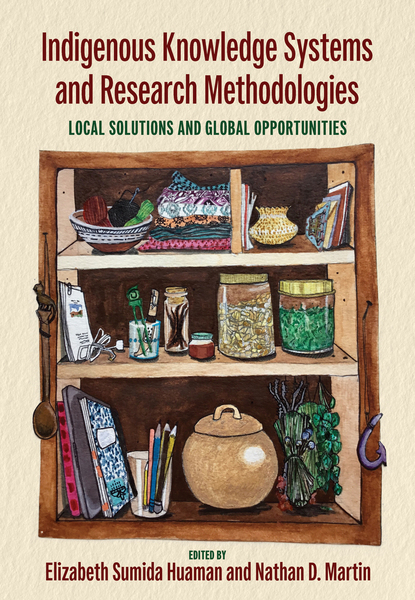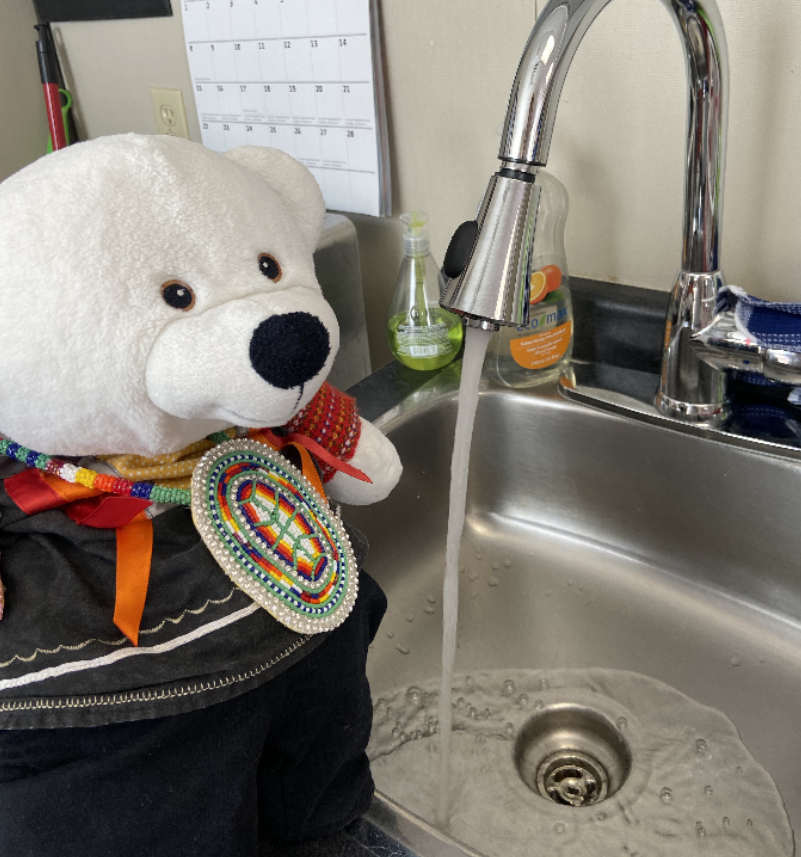Welcome

Welcome to the Aboriginal Education and Traditional Knowledge research guide
This guide is for faculty and students who wish to deepen their understanding of Indigenous approaches to education, and to Traditional Knowledge.
This is a living resource for the campus community and we welcome your suggestions for additions to the guide, please email Trina tgrover@torontomu.ca.
OCAP Principles
If your research includes working with Indigenous people, consider how you interact with the data you are collecting. The First Nations principles of ownership, control, access, and possession – more commonly known as OCAP® – assert that First Nations have control over data collection processes, and that they own and control how this information can be used. FNIGC offers a variety of education and training options to help you understand how to conduct your research with respect.
Citing Elders and Knowledge Keepers
Download the Guide Working with Elders before you approach a Knowledge Keeper for information.
MLA Style Citation
The MLA citation style in the spirit of wahkôhtowin and reconciliation was developed by Lorisia McLeod, who is from the James Smith Cree Nation. Elders and Knowledge Keepers should be cited in-text and in the reference list.
Last name, First name., Nation/Community. Treaty Territory if applicable. City/Community they live in if applicable. Topic/subject of communication if applicable. Date Month Year.
Example: Cardinal, Delores., Goodfish Lake Cree Nation. Treaty 6. Lives in Edmonton. Oral teaching. 4 April 2004.
APA 7 Style Citation
Last name, First initial., Nation/Community. Location including Treaty Territory if applicable. Personal communication. Month Date, Year
Example: Cardinal, D., Goodfish Lake Cree Nation. Treaty 6, Edmonton, Alberta. Personal communication. April 4, 2004.
Chicago Style Citation
The Chicago Style citation guidance was developed by Kwantlen Polytechnic University.
First Footnote: First Names Last Name (Elder), Nation, Topic/subject of communication if applicable, Personal communication, Territorial acknowledgement of where the information was shared, Month Date, Year.
Subsequent Footnote: Last Name, "Shortened title", page number.
Example: Delores Cardinal (Elder), Goodfish Lake Cree Nation. Living in Treaty 6. Personal communication. Edmonton, Alberta. April 4, 2004.
Subsequent Footnote Example: Delores, "Living in Treaty 6", 35.
Bibliography: Last Name, First Names (Elder), Nation. Topic/subject of communication if applicable. Personal communication. Territorial acknowledgement of where the information was shared. Month Date, Year.
Example: Cardinal, Delores (Elder), Goodfish Lake Cree Nation. Living in Treaty 6. Personal communication. Edmonton, Alberta, April 4, 2004.
Recommended reading
-
 Indigenous Knowledge Systems and Research Methodologies
by
ISBN: 9781773382074Publication Date: 2020
Indigenous Knowledge Systems and Research Methodologies
by
ISBN: 9781773382074Publication Date: 2020 -
Decolonizing Research : Indigenous storywork as methodology by
ISBN: 9781786994608Publication Date: 2019 -
Research Is Ceremony : Indigenous research methods by
Call Number: GN378 .D43 2019ISBN: 9781552662816Publication Date: 2008 -
Decolonizing Education : nourishing the learning spirit by
ISBN: 9781895830774Publication Date: 2013 -
-
Local organizations and library collections to consult for your research
-
Indigenous Studies Portal
 Articles, e-books, theses, government publications, videos, oral histories, reports, and digitized archival documents and photographs primarily focused Indigenous peoples of Canada with a secondary focus on Indigenous peoples of the United States, Australia, Aotearoa – New Zealand, and other areas of the world.
Articles, e-books, theses, government publications, videos, oral histories, reports, and digitized archival documents and photographs primarily focused Indigenous peoples of Canada with a secondary focus on Indigenous peoples of the United States, Australia, Aotearoa – New Zealand, and other areas of the world. -
Toronto Public Library's Native Peoples Collection
 Books, CDs and DVDs, as well as language-learning kits, by and about the Native Peoples of North America with special emphasis on First Nations, Métis, and Inuit peoples in Canada.
Books, CDs and DVDs, as well as language-learning kits, by and about the Native Peoples of North America with special emphasis on First Nations, Métis, and Inuit peoples in Canada. -
First Nations Caring Society
 The Indigenous Knowledge Portal includes annotated literature reviews, reports, guides, films, booklets, studies, journal articles and presentations all related to Aboriginal children and families in Canada and similar countries. The Caring Society follows OCAP principles and provides open access to all the documents.
The Indigenous Knowledge Portal includes annotated literature reviews, reports, guides, films, booklets, studies, journal articles and presentations all related to Aboriginal children and families in Canada and similar countries. The Caring Society follows OCAP principles and provides open access to all the documents. -
Collaborative Indigenous Research Digital Garden
 The goal for the digital garden is to grow the practice of collaborative Indigenous research by providing inspiring examples, and a platform for established and newcomer practitioners to share their work.
The goal for the digital garden is to grow the practice of collaborative Indigenous research by providing inspiring examples, and a platform for established and newcomer practitioners to share their work. -
Indigenous Education Network (IEN) at OISE
 A group of students, faculty and community members who share a common commitment to and passion for convening anti-colonial education, elevating radical ways of knowing, organizing action and change, and deepening relations between Indigenous, Black, and Black-Indigenous peoples.
A group of students, faculty and community members who share a common commitment to and passion for convening anti-colonial education, elevating radical ways of knowing, organizing action and change, and deepening relations between Indigenous, Black, and Black-Indigenous peoples. -
Toronto Council Fire Native Cultural CentreSee the spaces and events nearby where you can meet people and celebrate Indigenous culture.
Academic and personal support for students
Gdoo-maawnjidimi Mompii Indigenous Student Services
- Writing Support
- Study Skills and Transition Support


